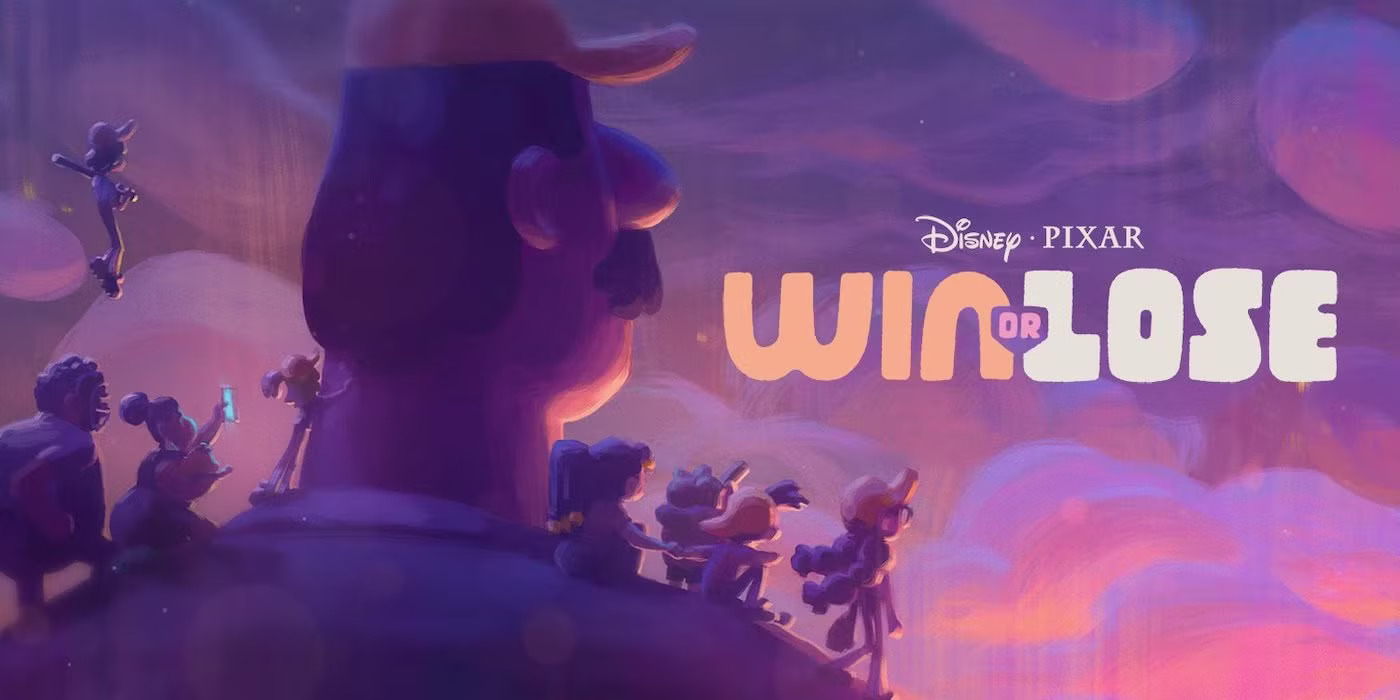Disney is renowned for its roster of iconic villains and legendary heroes, but both are notably absent in their latest offering. Instead, Disney+’s Win or Lose challenges its audience to reconsider how those roles—and many others—shift based on perspective.
The teacher who seemed like a bully might actually be a softie once you understand him better; the kids who appear cool in one person’s eyes might come across as jerks in another’s.
By that measure, the series excels. Pixar’s animation is stunning, brimming with light and texture so vivid you can almost feel it through the screen. The characters are distinctive yet relatable, making it easy to empathize with each of them. The storytelling is sharp, filling every scene with enough detail to lend weight to the world it builds.
Win or Lose
- The Bottom Line: A triumph—aside from one glaring misstep.
- Airdate: Wednesday, Feb. 19 (Disney+)
- Cast: Will Forte, Rosie Foss, Josh Thomson, Milan Elizabeth Ray, Rosa Salazar, Dorien Watson, Izaac Wang, Chanel Stewart
- Creators: Carrie Hobson, Michael Yates
It would be easy to call this a home run—if not for a significant oversight that mars what should have been a clear victory.
But first, let’s focus on the positives. Each of Win or Lose’s eight episodes centers on a different character associated with the Pickles, a coed adolescent softball team, exploring their personal journeys leading up to the big game.
Creators Carrie Hobson and Michael Yates elevate this premise by not just showing events from each protagonist’s perspective but by illustrating how they emotionally experience them.
For example, 12-year-old outfielder Laurie (Rosie Foss) carries her insecurities as a heavy gray blob (Jo Firestone) clinging to her shoulders, while 10-year-old Ira (Dorien Watson), a teammate’s younger brother, envisions his daydreams as superhero cartoons drawn in childlike crayon.
These are classic Pixar storytelling techniques (the former reminiscent of an all-Anxiety version of Inside Out 2), skillfully adapted to fit the show’s half-hour format.
Collectively, these narratives form a puzzle, where a minor character in one episode becomes the focus of the next, and key props resurface later in new contexts. Everything seems to be building toward a transformative event at the climactic game, foreshadowed by an opening montage of screaming children and adults set to “Ave Maria.”
Narratively, this approach is a gamble—the five episodes provided to critics conclude just before their emotional payoffs, seemingly saving them for a finale that ties everything together. Yet, this structure proves effective, injecting momentum into what could have otherwise felt like a loosely connected series of vignettes.

What truly sets Win or Lose apart is how it uses this format to draw viewers in. The show subtly invites us to notice Laurie’s house is full of moving boxes—but only for her father—and wonder about the untold struggles happening offscreen.
It encourages us to see how often Rochelle (Milan Elizabeth Ray) feels let down by her overburdened single mother Vanessa (Rosa Salazar)—but also, from Vanessa’s perspective, how tirelessly she tries and how deeply she cares.
It even highlights how the same pep talk from Coach (Will Forte) resonates differently with each player, revealing more about the listener than the speech itself.
By the second or third episode, you start looking for untold stories everywhere. Surely the arrogant pitcher, the friendly barista, or even the snack-shack lockbox have their own compelling narratives.
The show fosters patience and empathy, urging viewers of all ages to go beyond surface-level assumptions and embrace a more open-hearted perspective.
Which is why it is so disheartening that Disney has chosen to set a limit on that very empathy.
As first reported late last year, the studio removed a storyline featuring a trans teammate, Kai (Chanel Stewart), despite strong objections from many Pixar staffers. While Kai remains in the show, she has been rewritten as a cisgender character.
Critics were not provided with her episode, and she has not played a significant role in the ones available for review. As a result, it’s impossible to assess how the last-minute revisions impact her narrative or how erasing her trans identity alters her character’s journey.
What is clear, however, is that offering even a small gesture of compassion toward a trans child—and by extension, the many people who might see themselves or their loved ones in her—would have been profoundly meaningful in today’s climate.
Trans kids deserve stories that affirm their worth and acknowledge their struggles, just like any other child. Disney’s decision to erase that representation stands in stark contrast to the show’s core message of curiosity and understanding.
In many ways, Win or Lose is an outstanding achievement: smart, entertaining, visually breathtaking, and emotionally resonant. That’s what makes it all the more frustrating that the company behind it ultimately failed to uphold the very values it so effectively promotes.


